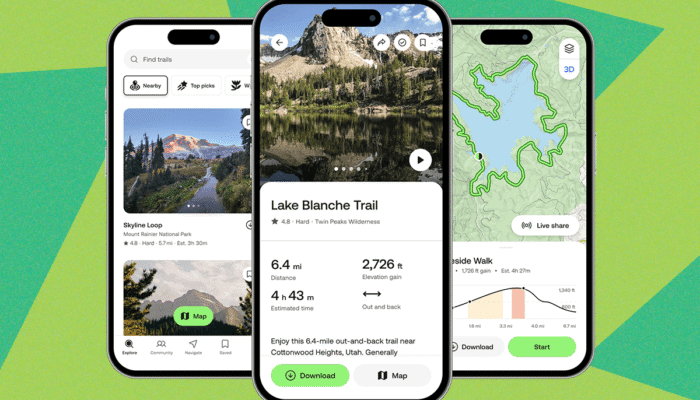On a 5K screen in Kirkland, Washington, four terminals blur with activity as artificial intelligence generates thousands of lines of code. Steve Yegge, a veteran software engineer who previously worked at Google and AWS, sits back to watch.
“This one is running some tests, that one is coming up with a plan. I am now coding on four different projects at once, although really I’m just burning tokens,” Yegge says, referring to the cost of generating chunks of text with a large language model (LLM).
Learning to code has long been seen as the ticket to a lucrative, secure career in tech. Now, the release of advanced coding models from firms like OpenAI, Anthropic, and Google threatens to upend that notion entirely. X and Bluesky are brimming with talk of companies downsizing their developer teams—or even eliminating them altogether.
When ChatGPT debuted in late 2022, AI models were capable of autocompleting small portions of code—a helpful, if modest step forward that served to speed up software development. As models advanced and gained “agentic” skills that allow them to use software programs, manipulate files, and access online services, engineers and non-engineers alike started using the tools to build entire apps and websites. Andrej Karpathy, a prominent AI researcher, coined the term “vibe coding” in February, to describe the process of developing software by prompting an AI model with text.
The rapid progress has led to speculation—and even panic—among developers, who fear that most development work could soon be automated away, in what would amount to a job apocalypse for engineers.
“We are not far from a world—I think we’ll be there in three to six months—where AI is writing 90 percent of the code,” Dario Amodei, CEO of Anthropic, said at a Council on Foreign Relations event in March. “And then in 12 months, we may be in a world where AI is writing essentially all of the code,” he added.
But many experts warn that even the best models have a way to go before they can reliably automate a lot of coding work. While future advancements might unleash AI that can code just as well as a human, until then relying too much on AI could result in a glut of buggy and hackable code, as well as a shortage of developers with the knowledge and skills needed to write good software.
David Autor, an economist at MIT who studies how AI affects employment, says it’s possible that software development work will be automated—similar to how transcription and translation jobs are quickly being replaced by AI. He notes, however, that advanced software engineering is much more complex and will be harder to automate than routine coding.
Autor adds that the picture may be complicated by the “elasticity” of demand for software engineering—the extent to which the market might accommodate additional engineering jobs.
“If demand for software were like demand for colonoscopies, no improvement in speed or reduction in costs would create a mad rush for the proctologist’s office,” Autor says. “But if demand for software is like demand for taxi services, then we may see an Uber effect on coding: more people writing more code at lower prices, and lower wages.”
Yegge’s experience shows that perspectives are evolving. A prolific blogger as well as coder, Yegge was previously doubtful that AI would help produce much code. Today, he has been vibe-pilled, writing a book called Vibe Coding with another experienced developer, Gene Kim, that lays out the potential and the pitfalls of the approach. Yegge became convinced that AI would revolutionize software development last December, and he has led a push to develop AI coding tools at his company, Sourcegraph.
“This is how all programming will be conducted by the end of this year,” Yegge predicts. “And if you’re not doing it, you’re just walking in a race.”
The Vibe-Coding Divide
Today, coding message boards are full of examples of mobile apps, commercial websites, and even multiplayer games all apparently vibe-coded into being. Experienced coders, like Yegge, can give AI tools instructions and then watch AI bring complex ideas to life.
Several AI-coding startups, including Cursor and Windsurf have ridden a wave of interest in the approach. (OpenAI is widely rumored to be in talks to acquire Windsurf).
At the same time, the obvious limitations of generative AI, including the way models confabulate and become confused, has led many seasoned programmers to see AI-assisted coding—and especially gung-ho, no-hands vibe coding—as a potentially dangerous new fad.
Martin Casado, a computer scientist and general partner at Andreessen Horowitz who sits on the board of Cursor, says the idea that AI will replace human coders is overstated. “AI is great at doing dazzling things, but not good at doing specific things,” he said.
Still, Casado has been stunned by the pace of recent progress. “I had no idea it would get this good this quick,” he says. “This is the most dramatic shift in the art of computer science since assembly was supplanted by higher-level languages.”
Ken Thompson, vice president of engineering at Anaconda, a company that provides open source code for software development, says AI adoption tends to follow a generational divide, with younger developers diving in and older ones showing more caution. For all the hype, he says many developers still do not trust AI tools because their output is unpredictable, and will vary from one day to the next, even when given the same prompt. “The nondeterministic nature of AI is too risky, too dangerous,” he explains.
Both Casado and Thompson see the vibe-coding shift as less about replacement than abstraction, mimicking the way that new languages like Python build on top of lower-level languages like C, making it easier and faster to write code. New languages have typically broadened the appeal of programming and increased the number of practitioners. AI could similarly increase the number of people capable of producing working code.
Bad Vibes
Paradoxically, the vibe-coding boom suggests that a solid grasp of coding remains as important as ever. Those dabbling in the field often report running into problems, including introducing unforeseen security issues, creating features that only simulate real functionality, accidentally running up high bills using AI tools, and ending up with broken code and no idea how to fix it.
“AI [tools] will do everything for you—including fuck up,” Yegge says. “You need to watch them carefully, like toddlers.”
The fact that AI can produce results that range from remarkably impressive to shockingly problematic may explain why developers seem so divided about the technology. WIRED surveyed programmers in March to ask how they felt about AI coding, and found that the proportion who were enthusiastic about AI tools (36 percent) was mirrored by the portion who felt skeptical (38 percent).
“Undoubtedly AI will change the way code is produced,” says Daniel Jackson, a computer scientist at MIT who is currently exploring how to integrate AI into large-scale software development. “But it wouldn’t surprise me if we were in for disappointment—that the hype will pass.”
Jackson cautions that AI models are fundamentally different from the compilers that turn code written in a high-level language into a lower-level language that is more efficient for machines to use, because they don’t always follow instructions. Sometimes an AI model may take an instruction and execute better than the developer—other times it might do the task much worse.
Jackson adds that vibe coding falls down when anyone is building serious software. “There are almost no applications in which ‘mostly works’ is good enough,” he says. “As soon as you care about a piece of software, you care that it works right.”
Many software projects are complex, and changes to one section of code can cause problems elsewhere in the system. Experienced programmers are good at understanding the bigger picture, Jackson says, but “large language models can’t reason their way around those kinds of dependencies.”
Jackson believes that software development might evolve with more modular codebases and fewer dependencies to accommodate AI blind spots. He expects that AI may replace some developers but will also force many more to rethink their approach and focus more on project design.
Too much reliance on AI may be “a bit of an impending disaster,” Jackson adds, because “not only will we have masses of broken code, full of security vulnerabilities, but we’ll have a new generation of programmers incapable of dealing with those vulnerabilities.”
Learn to Code
Even firms that have already integrated coding tools into their software development process say the technology remains far too unreliable for wider use.
Christine Yen, CEO at Honeycomb, a company that provides technology for monitoring the performance of large software systems, says that projects that are simple or formulaic, like building component libraries, are more amenable to using AI. Even so, she says the developers at her company who use AI in their work have only increased their productivity by about 50 percent.
Yen adds that for anything requiring good judgement, where performance is important, or where the resulting code touches sensitive systems or data, “AI just frankly isn’t good enough yet to be additive.”
“The hard part about building software systems isn’t just writing a lot of code,” she says. “Engineers are still going to be necessary, at least today, for owning that curation, judgment, guidance and direction.”
Others suggest that a shift in the workforce is coming. “We are not seeing less demand for developers,” says Liad Elidan, CEO of Milestone, a company that helps firms measure the impact of generative AI projects. “We are seeing less demand for average or low-performing developers.”
“If I’m building a product, I could have needed 50 engineers and now maybe I only need 20 or 30,” says Naveen Rao, VP of AI at Databricks, a company that helps large businesses build their own AI systems. “That is absolutely real.”
Rao says, however, that learning to code should remain a valuable skill for some time. “It’s like saying ‘Don’t teach your kid to learn math,’” he says. Understanding how to get the most out of computers is likely to remain extremely valuable, he adds.
Yegge and Kim, the veteran coders, believe that most developers can adapt to the coming wave. In their book on vibe coding, the pair recommend new strategies for software development including modular code bases, constant testing, and plenty of experimentation. Yegge says that using AI to write software is evolving into its own—slightly risky—art form. “It’s about how to do this without destroying your hard disk and draining your bank account,” he says.




